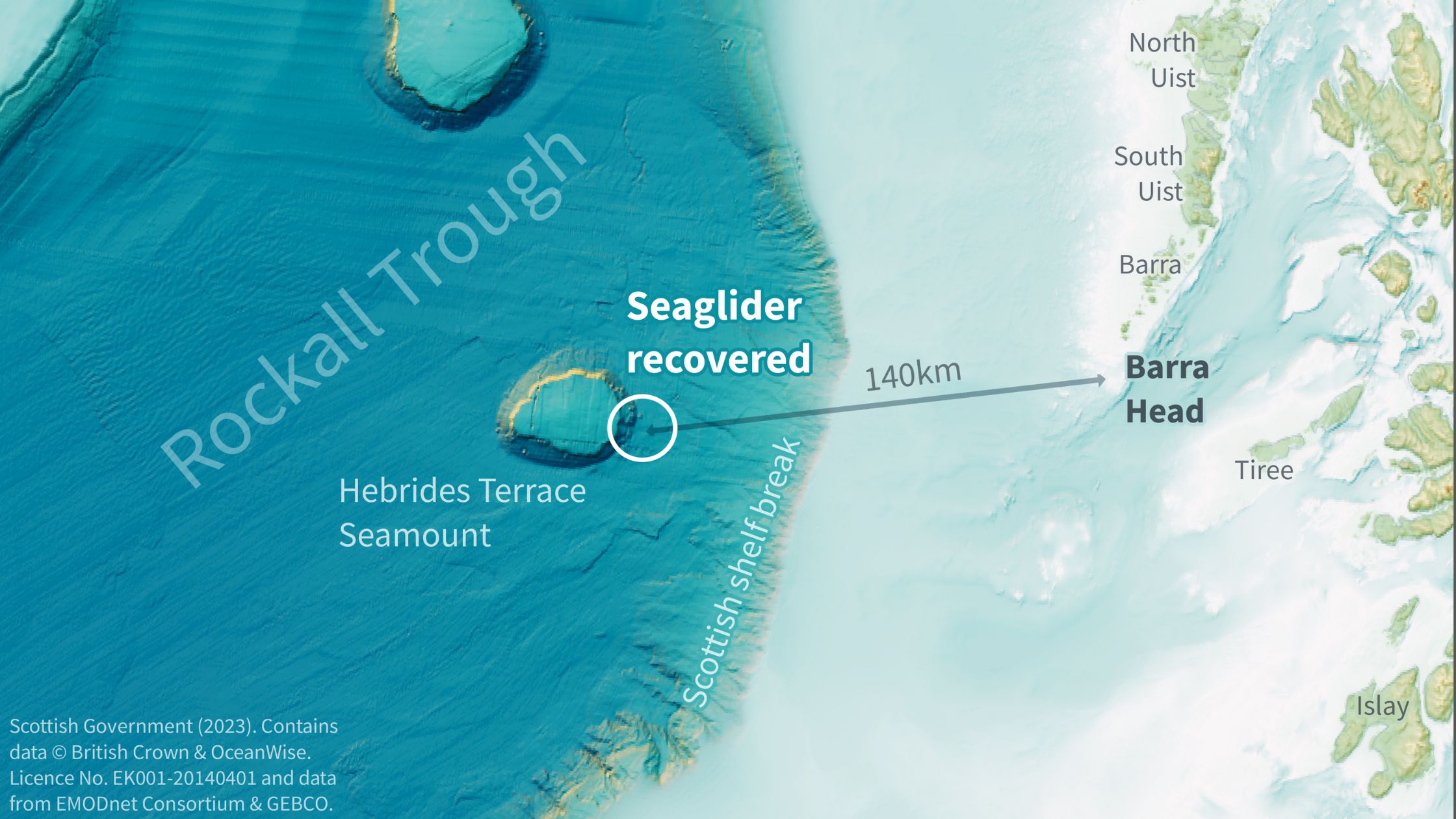Marine
When compliance searched for science
June 12, 2023 by Marine Scotland Communications 1 Comment | Category Climate Change, Collaborations, Marine Directorate general, Marine Directorate Science
In Spring 2023, the search and rescue skills of colleagues from the Marine Directorate of the Scottish Government on board our Marine Protection Vessel (MPV) Jura were called on to help locate and recover a lost scientific seaglider. This is equipment from the Scottish Association for Marine Science’s (SAMS) Climate Linked Atlantic Sector Science Programme (CLASS) project.
Seagliders are relatively small, underwater autonomous vehicles and are often deployed for months at a time. This particular glider, named Denebola, had been carrying out measurements of warm water flow from Atlantic to Arctic waters across the Scottish shelf break when it experienced a technical failure.
SAMS Marine Robotics Technical Manager, Estelle Dumont, explained:
“The underwater glider Denebola was deployed in November as part of the international Climate Linked Atlantic Sector Science Programme (CLASS) project, studying the North Atlantic climate and circulation. The glider had been carrying out key oceanographic measurements when the technical failure stopped it being able to dive or manoeuvre, and it began to drift off towards the Rockall Trough.”
MPV Jura was deployed on routine duties along the West Coast and was asked to assist in the recovery operation. The challenge was not only looking for a small seaglider in a vast and open sea area, but also its recovery due to a sizeable sea swell (caused by ocean waves) with poor conditions. A window of opportunity opened on 10 March and MPV Jura was re-tasked to depart at 6am from Barra Head, Hebrides in search of Denebola.
The seaglider’s position pinged every four hours so the crew of MPV Jura set their course towards its last known position. With a swell of between two and three meters, the seaglider was constantly being jostled and was nowhere to be seen. Employing some search and rescue techniques the crew embarked on an expanding box search, where a start point is chosen and the vessel plots a track in an outward square spiral – within 45 minutes the seaglider had been spotted and the rigid inflatable boat (RIB) was launched. The seaglider was successfully recovered and returned to SAMS.
Commanding Officer of the Scottish Government Marine Directorate, Mark Warsnop, recalls:
“The conditions were far from perfect with a two to three meter swell but we knew we could just about launch and recover. The recovery itself wasn’t exactly textbook due to the conditions but it was done without incident, thankfully.”
Denebola was taken for repairs at the National Oceanography Centre in Southampton to re-join the national pool of seagliders.
Estelle said:
“We are extremely grateful for the Marine Directorate of the Scottish Government crew of MPV Jura for recovering our faulty seaglider and meeting us on our doorstep at Dunstaffnage. Denebola will hopefully be in working order soon but we are pleased to say that a replacement seaglider, Eltanin, has been deployed for the project.”
You can follow Eltanin’s journey through this project on the SAMS website!
Tags: Climate Linked Atlantic Sector Science Programme (CLASS) Project, marine protection vessels, Scottish Association for Marine Science



Scottish government have to get their act together.
Bob